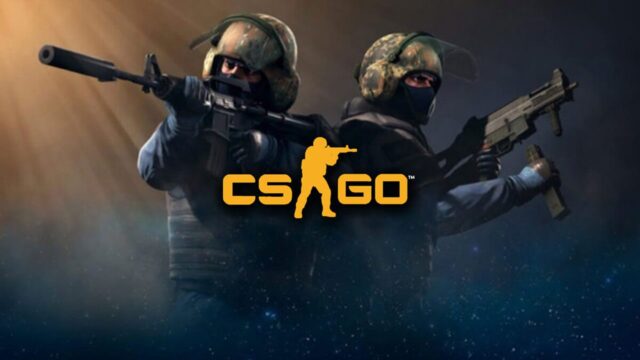
CSGO gambling has emerged as a unique and thrilling facet of the gaming community, leaving enthusiasts and newcomers alike buzzing with excitement. In this comprehensive article, we delve into the world of CSGO gambling, exploring its origins, popularity, and the key reasons behind its rise to prominence.
In recent years, the world of gaming has seen a remarkable shift towards an exciting and somewhat controversial trend – CSGO gambling. Counterstrike: Global Offensive, or CSGO for short, is a renowned first-person shooter game that has captured the hearts of millions of players worldwide. However, it’s not just the intense gameplay and competitive scene that’s garnering attention. CSGO gambling has emerged as a unique and thrilling facet of the gaming community, leaving enthusiasts and newcomers alike buzzing with excitement. In this comprehensive article, we delve into the world of CSGO gambling, exploring its origins, popularity, and the key reasons behind its rise to prominence.
The Genesis of CSGO Gambling

CSGO gambling didn’t happen overnight. It’s a phenomenon that evolved gradually, born from the ingenuity of the gaming community itself. The game’s developer, Valve Corporation, introduced weapon skins as cosmetic items that players could acquire. These skins not only changed the appearance of in-game weapons but also gave rise to a whole new economy within CSGO.
Skin Trading: The first step towards CSGO gambling was the introduction of a marketplace where players could buy, sell, and trade their skins. This system allowed gamers to get their hands on coveted skins and opened the door for skin-based gambling.
The Allure of Skin Betting
Skin betting, or skin gambling, became a sensation within the CSGO community due to several compelling reasons:
- Accessibility: Unlike traditional gambling, skin betting was easily accessible to players of all ages. All it required was a CSGO account and some skins to wager.
- Entertainment Value: Skin betting added an extra layer of excitement to the gaming experience. It made watching professional CSGO matches more engaging as viewers could bet their skins on the outcome.
- Thrill of Winning: The allure of winning rare and valuable skins was undeniable. It created a sense of thrill and anticipation that resonated with gamers.
The Rise of CSGO Gambling Websites

As skin betting gained momentum, dedicated CSGO gambling websites started to emerge. These platforms offered a wide array of gambling options, from classic casino games to innovative game modes inspired by CSGO gameplay mechanics.
- Jackpot Games: Jackpot games, where players could deposit their skins into a pot for a chance to win the entire jackpot, became incredibly popular. The higher the value of the skins deposited, the higher the chances of winning.
- Roulette and Coinflip: These games replicated the traditional casino experience, with CSGO skins as the currency. Players could bet their skins on the outcome of roulette spins or coin flips.
- Crash: The “Crash” game mode added an element of strategy and suspense. Players bet their skins and had to cash out before a rising multiplier crashed, losing everything if they cashed out too late.
The Controversy Surrounding CSGO Gambling
While CSGO gambling brought immense excitement to the gaming community, it also sparked controversies. One of the main concerns was underage gambling. With skins being a virtual currency, it was difficult to enforce age restrictions effectively, leading to concerns about minors participating in gambling activities.
Another issue was the potential for match-fixing in professional CSGO tournaments. Some players were accused of throwing matches to manipulate skin betting outcomes, tarnishing the integrity of competitive gaming.
The Regulatory Response

In response to these controversies, several regulatory bodies stepped in to address the concerns surrounding CSGO gambling. Valve Corporation issued cease and desisted letters to some gambling websites, forcing them to shut down or modify their operations. Additionally, many countries started imposing stricter regulations on online gambling, including skin betting.
Consequently, the regulatory landscape witnessed a paradigm shift, with governmental entities and gaming authorities intensifying their scrutiny. Authorities adopted a multifaceted approach, leveraging legal measures to curb unauthorized skin gambling platforms. In tandem with Valve Corporation’s cease and desist actions, legislators worldwide began crafting and enforcing legislation to combat the burgeoning issues in the virtual gambling sphere.
The regulatory response extended beyond national borders, as international collaboration became imperative to tackle the cross-border nature of these platforms. This concerted effort aimed at fostering transparency, consumer protection, and the overall integrity of online gaming ecosystems, ushering in a new era of accountability and responsible oversight in the ever-evolving world of CSGO gambling.
The Evolution of CSGO Gambling
Despite the challenges and controversies, CSGO gambling continues to evolve. Today, some gambling websites have transitioned to using virtual coins instead of skins, addressing some of the concerns related to underage gambling.
The Future of CSGO Gambling

As we look to the future, the fate of CSGO gambling remains uncertain. It has undoubtedly left a lasting impact on the gaming community, but its future will be shaped by evolving regulations and the adaptability of gambling websites. What is clear is that CSGO gambling has left the gaming community buzzing with excitement, providing a unique and thrilling way to engage with the world of esports.
In conclusion, CSGO gambling has emerged as a fascinating subculture within the gaming world, attracting both fervent enthusiasts and passionate detractors. Its journey from the introduction of skins to the rise of dedicated gambling websites has been nothing short of remarkable. While it has faced its fair share of controversies, it undeniably has the gaming community buzzing with anticipation for what the future holds.









